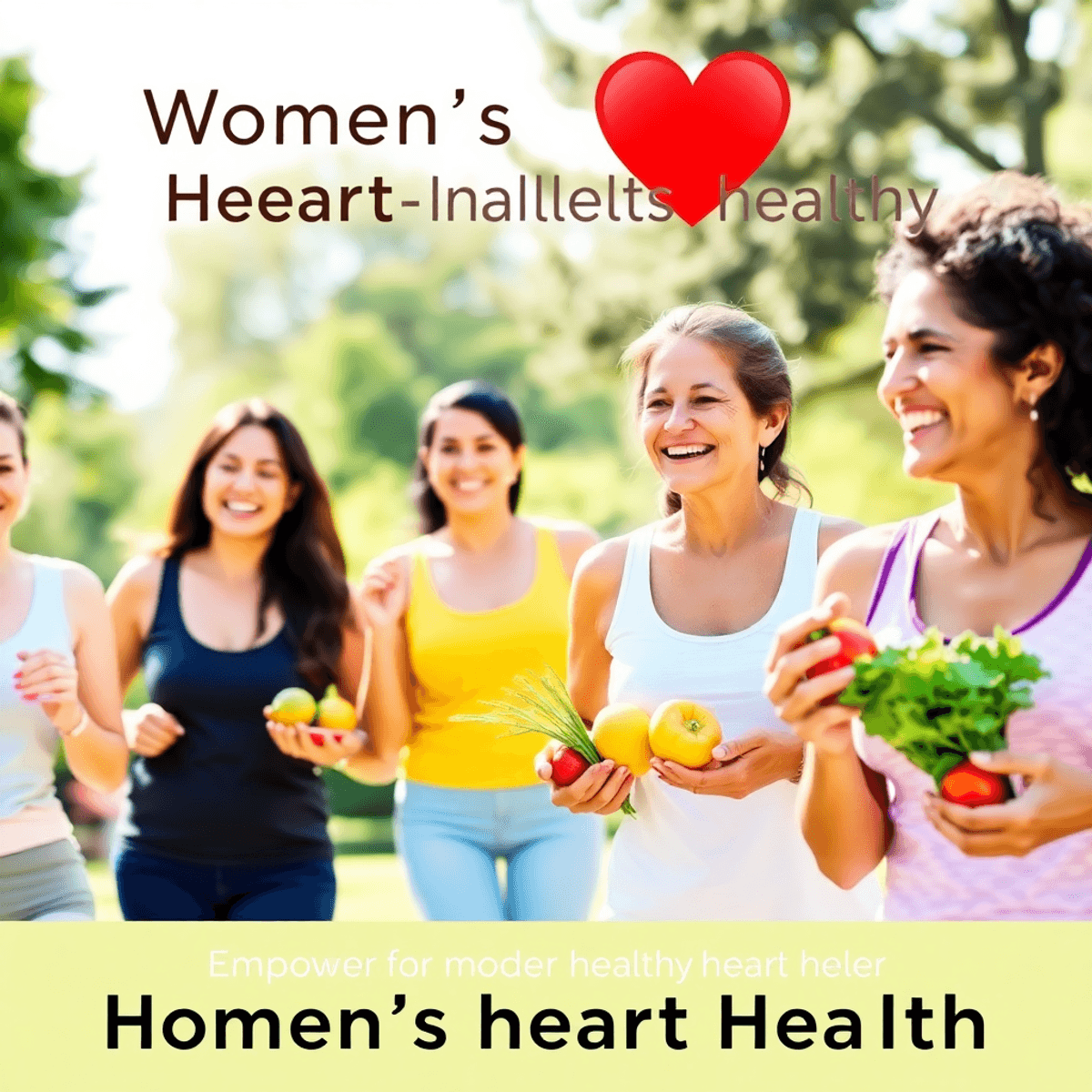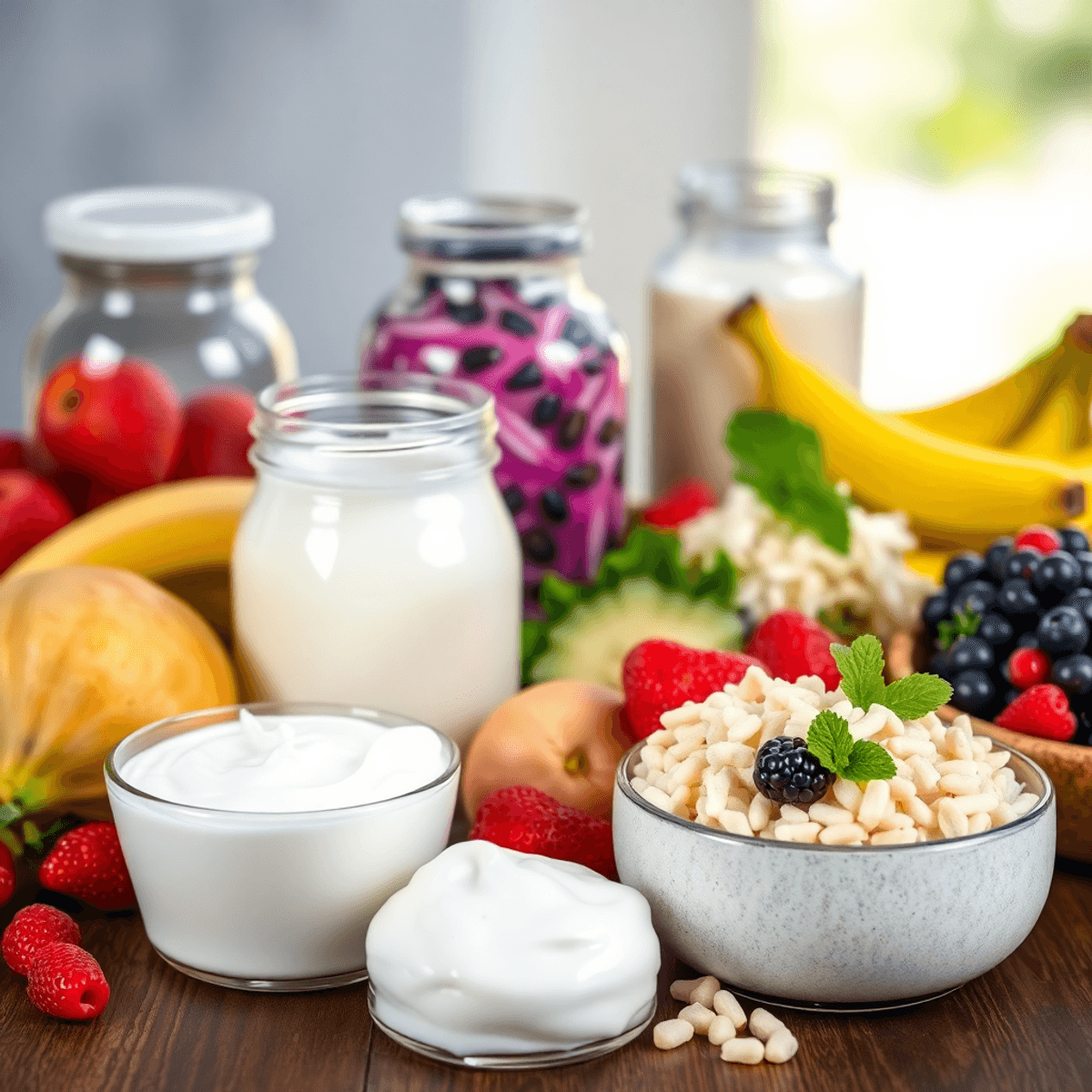Introduction
Heart health is a critical concern for women, as cardiovascular disease remains a leading cause of death. Understanding the specific needs of women’s heart health is essential for prevention and proactive care.
Vitamins and supplements play a vital role in supporting cardiovascular wellness. The best vitamins for women’s heart health help to:
- Reduce risk factors associated with heart disease
- Support overall heart function
- Improve energy levels and reduce inflammation
This article aims to provide insights into the essential vitamins and nutrients that contribute to women’s heart health. You will discover how specific supplements can enhance your cardiovascular well-being, empowering you to make informed choices for a healthier heart.
Understanding Women’s Heart Health
Cardiovascular disease is a leading cause of death among women, often overshadowing other health risks. The statistics are alarming, with heart disease claiming the lives of approximately one in every three women annually. This highlights the critical need to understand the unique risk factors that contribute to heart disease in women.
Unique Risk Factors
- Hormonal Changes: Post-menopausal women experience a decline in estrogen levels, which can lead to increased risk of heart disease.
- Pregnancy-related Conditions: Complications such as gestational diabetes or preeclampsia can elevate long-term heart disease risks.
- Autoimmune Diseases: Conditions like lupus and rheumatoid arthritis are more prevalent in women and contribute to cardiovascular risks.
Importance of Prevention and Proactive Measures
Understanding these factors highlights the importance of prevention. Regular health screenings, including blood pressure and cholesterol checks, play a crucial role. Lifestyle modifications—such as maintaining a balanced diet, engaging in regular physical activity, and managing stress—are vital preventive strategies.
Adopting these measures not only enhances heart health but also empowers women to take control of their cardiovascular well-being. This proactive approach is essential for reducing the burden of heart disease in women, fostering a healthier future for generations to come.
1. Essential Vitamins and Nutrients for Heart Health
Omega-3 fatty acids are well-known for their ability to protect the heart. They are essential in lowering triglyceride levels, which is crucial for keeping the heart healthy. By reducing these fats in the bloodstream, omega-3s help lower the chances of developing coronary artery disease and promote overall heart function.
Sources of Omega-3s:
Fish Oil: The main source of omega-3 fatty acids, fish oil supplements are made from the tissues of oily fish. They usually contain high amounts of both EPA (eicosapentaenoic acid) and DHA (docosahexaenoic acid), which are beneficial for reducing inflammation and improving heart health
- .
- Plant Sources: Options like flaxseeds, chia seeds, and walnuts provide alpha-linolenic acid (ALA), a type of omega-3 that the body partially converts into EPA and DHA. Although plant sources offer fewer direct benefits compared to fish oil, they remain an important part of a balanced diet.
Recommended Dosage and Considerations:
Experts commonly recommend 250 to 500 mg combined EPA and DHA per day for general heart health. However, higher doses might be necessary under specific conditions. Possible side effects include gastrointestinal issues or interactions with blood-thinning medications, emphasizing the importance of consulting with a healthcare provider before starting any new supplement regimen.
2. Coenzyme Q10 (CoQ10) for Energy Production and Antioxidant Support
CoQ10 benefits are gaining recognition as a crucial component for women’s heart health, particularly due to its role in cellular energy production. Coenzyme Q10 is vital for the mitochondria, the powerhouse of cells, and is especially important in the heart muscle, which requires substantial energy to function efficiently.
1. Energy Production
CoQ10 assists in the generation of adenosine triphosphate (ATP), the primary energy currency of cells. This process is essential for maintaining optimal heart function and supporting overall cardiovascular health.
2. Antioxidant Protection
As an antioxidant, CoQ10 helps reduce oxidative stress and inflammation, factors closely associated with heart disease progression. By neutralizing free radicals, it contributes to protecting the heart from damage.
3. Support for Heart Conditions
CoQ10 shows potential benefits for individuals with heart failure or those undergoing specific cardiovascular treatments. It may alleviate symptoms by enhancing mitochondrial function and improving energy availability within heart cells.
Incorporating CoQ10 into your regimen can be a strategic step towards enhancing cardiac vitality, especially when considering the best vitamins for women’s heart health. Always consult healthcare professionals before making any changes to your supplement plan.
3. Magnesium: A Key Mineral for Blood Pressure Regulation and Cardiovascular Health
Magnesium is important for keeping our heart and blood vessels healthy, especially when it comes to controlling blood pressure. Studies show that low levels of magnesium are strongly linked to a higher chance of developing high blood pressure and other heart-related problems. Women, in particular, may be at risk because they may not get enough magnesium from their diet or lifestyle choices.
Benefits of Magnesium Supplementation
- Blood Pressure Control: Taking magnesium supplements can help keep blood pressure levels in check by relaxing blood vessels and improving how well they work.
- Cardiovascular Protection: Getting enough magnesium supports a regular heartbeat and lowers the risk of arrhythmias, which are abnormal heartbeats connected to various heart issues.
Magnesium deficiency not only affects blood pressure but can also contribute to other health problems, such as stiff arteries and inflammation. The recommended daily intake of magnesium for women varies depending on age, but it generally falls between 310 to 320 mg.
Including magnesium-rich foods like leafy greens, nuts, seeds, and whole grains in your diet can help maintain adequate levels. If you’re unable to meet your magnesium needs through diet alone, taking supplements may be a helpful approach. Making magnesium a priority is crucial for promoting long-term heart health and reducing the risks associated with heart disease.
4. Fiber-Rich Foods: Nature’s Way to Lower Cholesterol Levels
Dietary fiber plays a crucial role in maintaining heart health, particularly in managing cholesterol levels. Soluble fiber, found in foods like oats, beans, lentils, and fruits, effectively binds to cholesterol particles in the digestive system. This binding process helps remove cholesterol from the body before it enters the bloodstream, ultimately reducing overall cholesterol levels.
Incorporating fiber-rich foods into your diet offers numerous cardiovascular benefits:
- Cholesterol Management: Regular consumption of dietary fiber can lead to significant reductions in both LDL (bad) cholesterol and total cholesterol levels.
- Weight Management: High-fiber foods tend to be more filling, which can help with weight control—a key factor in heart health.
For those who struggle to get enough fiber through diet alone, fiber supplements can serve as a valuable addition. These supplements often come in various forms such as powders, capsules, or chewable tablets. They can be an effective strategy for those looking to enhance their daily fiber intake without drastically altering their diet.
However, it’s essential to increase fiber intake gradually and ensure adequate hydration to prevent digestive discomfort. Balancing dietary sources of fiber with supplements provides a comprehensive approach to supporting cardiovascular well-being.
5. Multivitamins: Bridging Nutritional Gaps for Women’s Heart Health
Multivitamins play a critical role in bridging dietary deficiencies that may impact cardiovascular well-being. With today’s fast-paced lifestyle, maintaining a balanced diet can be challenging, leading to gaps in essential nutrients crucial for heart health.
1. Multivitamin Benefits
These supplements offer a convenient way to ensure you receive vital nutrients such as B vitamins, vitamin D, and antioxidants like vitamins C and E. These components are known to support heart function and reduce the risk of various heart-related conditions.
2. Best Vitamins for Women’s Heart Health
Incorporating multivitamins tailored for women can specifically address nutritional needs that may change with age or due to specific health concerns.
By filling these nutritional gaps, multivitamins contribute to overall cardiovascular health, serving as an effective strategy alongside a nutritious diet and healthy lifestyle choices.
6. The Controversial Role of Vitamin D in Heart Health: What You Should Know
The significance of vitamin D in promoting heart health has generated substantial discussion among medical professionals. Studies have produced inconsistent findings regarding its relationship with heart disease risk and outcomes. While some research indicates that low levels of vitamin D may be associated with a higher likelihood of cardiovascular issues, other studies remain uncertain about its direct impact.
Why is Vitamin D Important for Your Health?
Maintaining sufficient vitamin D levels is essential for overall well-being. This nutrient plays a vital role in various bodily functions, including:
- Supporting bone health by aiding calcium absorption
- Regulating immune system function
- Influencing cell growth and development
- Potentially reducing inflammation
How Does Your Body Get Vitamin D?
The body primarily acquires vitamin D through:
- Sunlight Exposure: Ultraviolet rays from the sun trigger vitamin D synthesis in the skin, making outdoor activities a natural source.
- Food Sources: Fatty fish like salmon and mackerel, fortified dairy products, and egg yolks contribute to dietary vitamin D intake.
- Supplementation: For individuals with limited sun exposure or dietary restrictions, supplements can help achieve optimal levels.
Why Should You Monitor Your Vitamin D Levels?
Monitoring your vitamin D status with regular blood tests can be beneficial. Discussing potential deficiencies with a healthcare provider ensures tailored advice on how best to maintain sufficient levels, whether through lifestyle changes or supplementation.
While the exact relationship between vitamin D and heart health remains unclear, prioritizing adequate levels of this nutrient is important for overall wellness.
7. Garlic Supplements: A Flavorful Option with Potential Cardiovascular Benefits
Garlic supplements are gaining attention for their potential cardiovascular benefits, particularly due to their active compounds, such as allicin. These compounds may contribute to lowering blood pressure, which is essential for maintaining heart health.
Key aspects of garlic supplements include:
- Blood Pressure Reduction: Studies suggest that garlic can help relax blood vessels and improve circulation. This effect may lead to a decrease in systolic and diastolic blood pressure levels.
- Antioxidant Properties: Garlic is rich in antioxidants, which can combat oxidative stress that contributes to heart disease progression.
While incorporating garlic supplements into your routine may offer these benefits, it’s crucial to consider potential precautions:
Potential Precautions
- Blood-Thinning Effects: Garlic has natural anticoagulant properties that can thin the blood. For individuals taking anticoagulant medications, this could increase the risk of bleeding or bruising. Consulting with a healthcare professional before starting garlic supplements is advisable to ensure it’s safe and effective.
Embracing garlic as part of a heart-healthy regimen can be beneficial, but awareness of its effects is vital for optimal cardiovascular care.
8. L-Carnitine: An Amino Acid That Supports Fat Metabolism in the Heart
L-Carnitine plays a vital role in heart health by facilitating the transport of fatty acids into the mitochondria, the powerhouse of cells. This process is crucial for converting fatty acids into energy, enabling the heart to function optimally.
Benefits of L-Carnitine for Heart Health
- Energy Production: By assisting in the oxidation of fatty acids, L-Carnitine enhances energy production in heart muscles.
- Reduced Fatigue: Higher energy levels can contribute to reduced fatigue and improved exercise capacity, which is essential for overall cardiovascular health.
Sources and Supplementation
L-Carnitine can be obtained from:
- Animal Products: Red meat and dairy are rich sources.
- Supplementation: Available as a dietary supplement for those who may not get enough through diet alone.
Recommended Dosage
Consulting with healthcare professionals is advisable to determine appropriate dosing based on individual needs and health conditions.
While L-Carnitine offers promising benefits as one of the best vitamins for women’s heart health, understanding its role within a broader nutritional strategy is essential.
9. Green Tea Extract: Nature’s Antioxidants for Heart Health
Green tea extract is known for its antioxidant properties, mainly because it contains a lot of polyphenols. These compounds are important in reducing oxidative stress, which is connected to heart disease. But green tea extract offers more than just antioxidants:
- Cholesterol Improvement: Drinking green tea regularly may lower levels of LDL cholesterol, also known as “bad” cholesterol. This can help reduce the risk of atherosclerosis, a condition where plaque builds up in the arteries.
- Blood Vessel Function: Green tea extract helps keep blood vessels healthy by supporting endothelial function. When the endothelium (the inner lining of blood vessels) functions well, blood flow improves and the risk of high blood pressure decreases.
- Anti-inflammatory Effects: Inflammation plays a role in cardiovascular diseases. The anti-inflammatory properties of green tea may help lower this risk factor.
Adding green tea extract to your daily routine can be good for your heart health. You can find it in different forms like capsules and powders, but make sure to choose high-quality sources for the best results.
The Role of Diet in Heart Health Beyond Supplements
A healthy diet for women is essential for maintaining heart health. Prioritizing a balanced diet can enhance the effectiveness of vitamins and supplements. Consider incorporating the following:
- Fruits and Vegetables: Rich in antioxidants, these foods help combat oxidative stress and inflammation.
- Whole Grains: Sources like oats, brown rice, and quinoa support healthy cholesterol levels and provide essential fiber.
- Lean Proteins: Options such as chicken, fish, beans, and legumes contribute to muscle health while minimizing saturated fat intake.
- Healthy Fats: Incorporate sources like avocados, nuts, seeds, and olive oil to promote heart health through beneficial fatty acids.
These dietary components work together with supplements to optimize cardiovascular wellbeing. A holistic approach ensures that your body receives all necessary nutrients, fostering a resilient heart. Emphasizing whole foods not only supports heart health but also enhances overall vitality.
Consultation with Healthcare Professionals Before Starting Any New Supplement Regimen
Seeking healthcare advice is essential before incorporating any new vitamins or supplements into your routine. Qualified healthcare providers can:
- Assess individual health needs
- Identify potential interactions between different supplements and medications
- Recommend the best vitamins for women’s heart health based on personal health history
Consider the following:
- Supplements can interact with prescription medications, impacting their effectiveness
- Not all supplements are suitable for everyone; personalized recommendations are crucial
- Regular check-ups can help monitor heart health and adjust supplement regimens accordingly
Consulting a healthcare professional ensures that you make informed decisions about your heart health, leading to safer and more effective outcomes. Taking this proactive approach supports your overall well-being while maximizing the benefits of vitamins and nutrients specifically targeted for cardiovascular health.












This article is very informative about heart health for women. It highlights how essential vitamins, like Omega-3 and CoQ10, can help prevent heart diseases. Remembering to consult a healthcare professional before taking supplements is crucial.
I think is very important to recognize how many women may not be getting enough vitamins and minerals to maintain heart health. Education on this topic is crucial, as many are unaware of their specific needs for cardiovascular wellness.